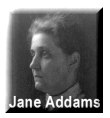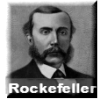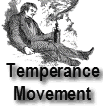| A | B |
|---|
| PITTSBURGH |  |
| CHICAGO |  |
| NEW ENGLAND | Center of textile industry |
| MIGRATION FROM RURAL TO URBAN AREAS | Result of mechanization on farms |
 | Edison's 1879 invention |
| TELEPHONE's INVENTOR |  |
| URBAN GHETTOS | Crowded immigrant city neighborhoods |
 | She founded Hull House |
| HULL HOUSE | a settlement house that provided services to immigrants in Chicago |
| POLITICAL MACHINES | Gained power by attending to the needs of new immigrants for jobs, housing etc. |
| RESERVATIONS | Lands onto which Indians were convinced or forced to move. |
| LITTLE BIGHORN | Custer and his men died in an attack against 2000 Sioux Indians during this battle |
 | He led the Nez Perce Indians on a long trek, but was captured near the Canadian border and returned to a reservation. |
| TENEMENT | An overcrowded apartment building |
 | Laws passed to discriminate against African Americans and maintain a system of legal segregation. |
 | He believed equality could be achieved through education |
 | Founded the NAACP; Called for complete equality and an end to discrimination. |
 | Standard Oil owner; his trust controlled the drills to the pumps |
 | Owner of the Pittsburgh steel corporation |
 | An invention that reduced the need for farm labor |
| AMERICAN FEDERATION OF LABOR | This union bargained for higher wages, shorter hours, and better conditions |
| HOMESTEAD STRIKE | Strike at Carnegie's steel factory ended in violence, turned people against organized labor. |
| RESPONSE TO THE NEGATIVE EFFECTS OF INDUSTRIALIZATION | The rise of organized labor and Progressive Movement workplace reforms |
| PROGRESSIVE MOVEMENT REFORMS | Improved workplace conditions, reduced work hours, restrictions on child labor |
| NEGATIVE EFFECTS OF INDUSTRIALIZATION | Child labor, low wages and long hours, unsafe working conditions |
| EFFECT OF INDUSTRIALIZATION ON FARMS | Mechanization reduced the need for farm labor, workers moved to cities, more consumer goods available |
| RAILROADS, OIL, STEEL | Examples of big business during this era |
| FACTORS THAT CAUSED THE GROWTH OF INDUSTRY | Access to raw materials, ilarge work force, financial capital, and new technologies |
| REASONS FOR THE RISE OF BIG BUSINESS | National markets created by railroads, lower-cost production, advertising, captains of industry (Rockefeller, Carnegie, and Ford) |
| WOMEN'S SUFFRAGE | Attained voting rights for women with passage of 19th Amendment, increased educational opportunities |
 | Two leaders of the women's suffrage movement |
| 19th AMENDMENT | Amendment granting women the right to vote |
 | Sought a ban on the manufacture and sale of alcohol |
| 18th AMENDMENT | 1918 Amendment banning the manufacture and sale of alcohol |
| REASONS FOR WESTWARD EXPANSION IN THE LATE 1800s | Opportunities for land ownership, technological advances (transcontinental railroad), gold and silver discoveries, adventure, new life (for former slaves). |
| REASONS FOR INCREASED IMMIGRATION | Better opportunities, religious freedom, escape from oppressive governments, adventure |
| REASON CITIES DEVELOPED | Specialized industries, immigration, migration from rural areas |
| CAPTAINS OF INDUSTRY | John D. Rockefeller - oil; Andrew Carnegie - steel; Cornelius Vanderbil - shipping, railroadst |
 | Railroad and shipping industry magnate |
 | Led the Sioux to victory in the Battle of Little Bighorn |
 | Apache leader who fought U.S. troops and avoided capture for 20 years |
| Battle of Wounded Knee | A massacre of Sioux men, women and children in 1891 |